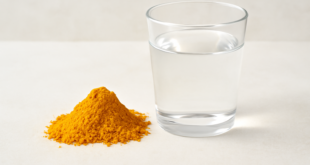
UNDERSTANDING MENOPAUSE
Menopause will inevitably play a part in every woman’s life; unfortunately, its symptoms often include painful ones like bloating. Furthermore, many experience unexpected weight gain which makes this transitional phase physically and emotionally taxing than anticipated.
Probiotics have gained increasing attention as an effective method to control menopausal symptoms through studies on gut health. Let’s investigate more how probiotics might restore balance to your system during menopause and aid it during this natural transition period.
Menopause-Gut Connection
Menopause-Gut Connection recognizing Menopause Effect on Our Bowel Digestion Oestrogen levels decrease; digestion becomes slower; gas production rises; fat storage changes occur – these all can have drastic impacts on how our metabolism and digestive systems operate day-to-day.
These changes disrupt intestinal flora, leading to symptoms like constipation, bloating and weight gain in the abdominal region. Poor gut health after menopause has also been associated with inflammation, fatigue, mood changes or increased aggressive behavior.
Probiotics help restore the natural balance of good bacteria within our gut flora to facilitate better digestion and inflammation control, ultimately aiding more efficiently with weight management.
Probiotics have recently been shown in multiple studies to be an effective solution to both menopausal symptoms and weight fluctuations during and post menopause, providing stabilization through improved gut function that facilitates increased nutrient absorption as well as hormonal balance throughout your system. They’ve proven their value with numerous research initiatives showing benefits both before, during, and after menopause.
What Can Probiotics Help with?
Menopausal symptoms often result in bloat due to poor digestion or an imbalance of gut flora that create gas. By breaking down food more effectively while simultaneously decreasing dangerous bacterial build-up, probiotic strains could aid in treating certain diseases and disorders.
Lactobacillus acidophilus and Bifidobacterium lactis have both been proven to effectively lower gas levels and promote regularity for smooth digestion resulting in flatter stomachs – alleviating that uncomfortable gassed feeling in no time!
Facts To Know
Probiotics have proven invaluable for women looking to manage water retention, gas and discomfort caused by daily life; furthermore they’ve shown great promise as ways of strengthening gut linings and decreasing toxic exposure into their bloodstreams – giving women tremendous relief! Probiotics really do support women immensely!
Probiotics contain enzymes to aid in digesting food more thoroughly, aiding with digestion without undigested fats or carbs causing discomfort and bloat. A long-term probiotic regimen could prove especially helpful to menopausal digestive wellness management.
Weight Control in Menopause
Menopause Probiotics as Weight Control Solutions Menopause has long been linked with weight gain around the waist due to hormonal shifts and cortisol production – as well as decreased metabolic activity yet remaining difficult to shift. Probiotics provide yet another effective approach for women looking for ways to control their weight.
Probiotics have the power to significantly decrease belly fat over time when taken on a consistent basis, by changing how your body stores and uses energy efficiently. With Lactobacillus gasseri strain showing promise for this purpose, probiotics could provide invaluable assistance by changing how fat stores in your system while making energy use more effective and energy use more efficient.
How to Select Probiotic Supplements
Probiotic supplements should include strains with proven history of supporting both digestive health and metabolic efficiency when taken as prescribed, for optimum effectiveness of use when supporting both. When selecting such probiotic strains it will guarantee optimal effectiveness of support of both.
Search for products featuring Saccharomyces boulardii, Lactobacillus and Bifidobacterium; ensure it boasts at least 10 billion CFU count and either shelf stability or must be refrigerated immediately upon arriving. For optimal effectiveness.
If in doubt, seek advice from an experienced nutritionist or physician familiar with menopause and gut health for tailored advice.
Final Thoughts
Light Support on an Uncertain Path Menopause can be daunting; however, by adding probiotics in small, slow doses into one’s daily regimen can significantly ease its symptoms and smooth one’s journey through menopause.
Probiotics have the power to alleviate bloating, improve digestion and even promote weight control by strengthening gut health over time. No supplement can replace lifestyle choices; however probiotics offer a safe approach towards feeling better internally.
Prior to beginning any supplement program for menopause, be mindful of your body and consult a medical provider.
 healthybodyboost.net Healthy Body Boost
healthybodyboost.net Healthy Body Boost



